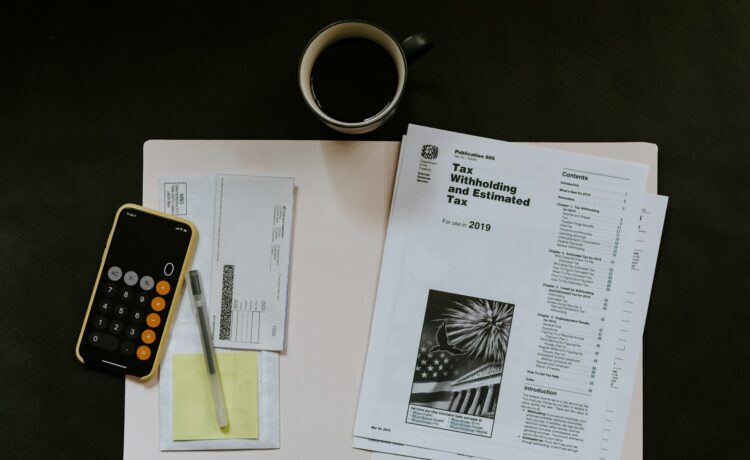Tax season is stressful, but it doesn’t have to be stressful. For anyone who is a taxpayer especially one in Australia, it is key to note on how to lodge their tax return to enable get the best refund they are entitled for and to avoid the law. Regardless if it’s your first time dealing with taxes or you have been doing it for years, the knowledge of the definite and even more in depth look at the Australian tax system will help you.
No matter the kind of calendar year and how busy the fiscal year was, this guide provides all essentials one needs to know on tax returns right from fundamentals such as key deadlines to even the familiar one termed as deductions. Are you prepared to learn how it works? Let’s dive in!
Understanding Tax Returns in Australia
Australian tax returns are important aspect of the Australian financial system. They enable people to file the taxes they make an income for the year and declare the amount they spent on some allowable expenses.
In Australia, the tax year starts from July the 1 ^{st} and ends on the 30 ^{th} of June. Filing of your return takes place after this period which is between July 1 and October 31 for most individuals. Knowledge of the income determines the taxes payable to the government or else refundable income.
There is the Australian taxation office which monitors the compliance and makes sure that both the employee and the business has met the required legal requirements. Any citizen who pays tax to the U.S government must ensure that he/she keeps a record of all the income Wages, Dividends or any other kind of income that he/she receives as it will be used in preparing the return.
Knowledge of tax slabs is also important as well. It may also be helpful to know how you fit in so that you understand which portion of your income will be taxed at various levels.
Steps to Lodge Your Tax Return
Filing your lodge tax return in Australia may seem complex but here are some easy steps that will help you go through it easily.
First, compile all the papers that are essential for completion of a particular type of work. These are your payment summaries, bank statements, and your receipts where you are going to deduct your payments.
Then, decide how you will submit your tax return and this can be either; It can be done through the myTax site of the ATO or you can hire a registered tax agent if you want to hire a professional to do the job.
Once a person is ready, he should fill the form correctly without any mistake. Make sure all information input is correct to prevent receiving a message in the future with request to fill in the information or get a fine.
When filing any return, it should be noted that a copy of the return filed must be retained. It will be useful for future reference and might be required in case if the ATO has some questions to your submission.
Track any new information from the ATO that might refer to your refund process, or anything else they may require from you.
Common Deductions and Expenses
One thing which is invariably important when you are completing a tax return is understanding what tax deductions are available. Some of the standard headings are; expenses incurred in the course of undertaking business among them being work expenses. If you have spent money on tools or uniform that require for your job, be sure to save the receipts for these items.
That is why investment costs are also subject to deductions. This entails charges for handling an investment and all costs which one may accrue in earning interest income.
COVID-19-era telecommuting has made home office claims more frequent than ever. There is a possibility to deduct a part of the utilities and Internet bills depending on their use.
Charitable contributions can also not be forgotten as well when calculating the overall expenses. Donations to those organisations on the list of registered charities can be a great way of claiming tax rebates, so keep your receipts handy.
They also may be deductible when have exceeded those predetermined limits in some situations. Sometimes it’s good to refer to the current regulations to ensure you are getting the most out of the eligible claims.
Maximizing Your Tax Refund
The trick to getting a huge tax refund is to understand what you’re allowed to deduct. Often every penny saved really does add up, so it’s important to gather all the recordings in the course of a year.
Think about costs that are connected to your occupation for example, a uniform or operating tools. If you use your car to travel for business, do not write off the kilometers.
Investigate other tax related to investment also as well. Interest on loans for investments and costs related with management of such investment may be allowed.
The government also allows you to increase your refund using any donation made to an attempt charity organization as defined by the act. Save or produce receipts for these amounts because they serve as evidence when applying for reimbursement.
Do not fail to check if there are other PUCs or rebates eligible to one based on certain features such as family or age. Rejecting any approach will guarantee that you are not missing out on anything every time it is time to file that return.
Key Dates and Deadlines
Being aware of important dates can greatly help you when filing your Australian tax return. Here, the Australian Taxation Office (ATO) has laid down certain time lines which have to be followed by you.
The general rule of law with regard to most people it is October 31st for the filing of the tax return. If you have missed this date then don’t panic yet. It’s good news if you are associating with a registered tax agent since you may still get an extension though you need to register the tax agent before this October.
For the self-employed or business people it is also different where different time lines apply. When using it, one should always make a point of checking the ATO for changes or new rulings as they might#release a new ruling in regards to some financial years or whenever circumstances require them.
Remember also that it is good to pay any owed taxes by the due date in order to avoid penalties as well as interest charges. These are important dates that you need to always note down so that you can be ready well in advance.
If you pay close attention to all these deadlines and set a reminder easily you will incur fewer troubles when it is time to file your taxes. It also saves stress and ensures the maximum potential refunds are achieved because everything is done right and on time.





